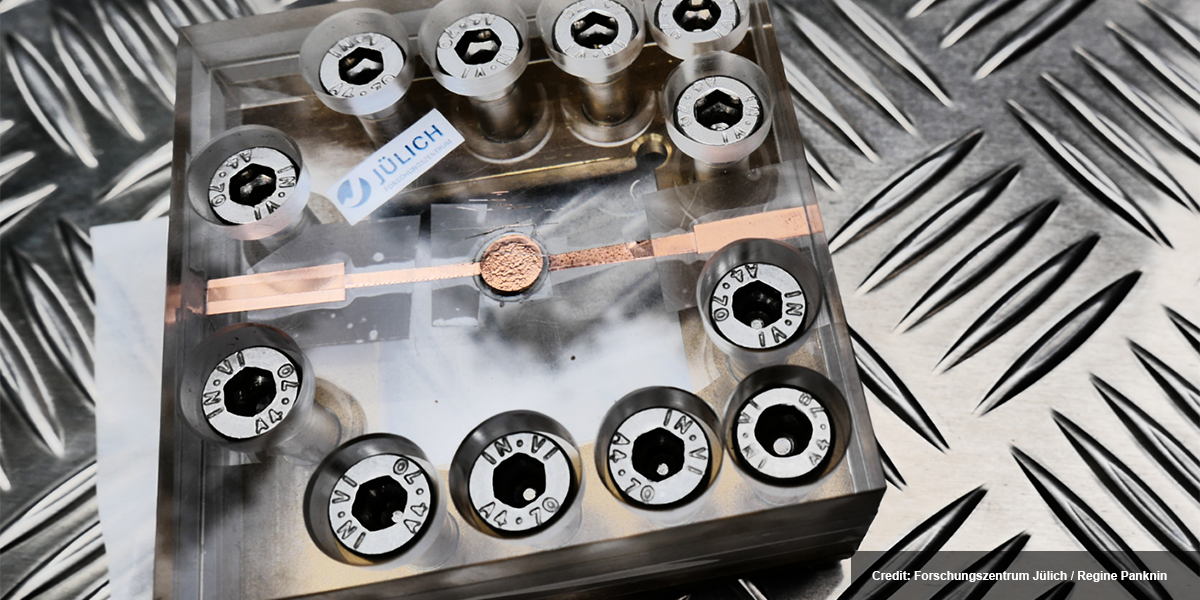FZ Jülich team patents fast-charging solid-state battery
Researchers at the FZ Jülich have found a way to make solid-state batteries charging fast. They claim their concept allows currents up to ten times greater than those previously found. The clue lies in choosing materials with consistently good compatibility.
This means the solid-state battery materials are well matched both chemically and mechanically. In the case of the Jülich researchers, all components of the solid-state battery were made from different phosphate compounds.
Dr. Hermann Tempel, group leader at the Jülich Institute for Energy and Climate Research (IEK-9) explains: “In order to allow the largest possible flow of current across the layer boundaries, we used very similar materials to produce all components. The anode, cathode, and electrolyte were all made from different phosphate compounds to enable charging rates greater than 3C (at a capacity of about 50 mAh/g). This is ten times higher than the values otherwise found in the literature.”
This translates to charge times of less than an hour for the cells the researchers have designed. Their approach does away with one of the biggest hurdles to solid-state batteries – the low current. It is the reason why it usually takes about 10 to 12 hours for a solid-state battery to fully charge. “This is where our concept based on a favourable combination of materials comes into play, and we have already patented it,” adds Tempel.
The solid electrolyte serves as a stable carrier material. Phosphate electrodes are then screen printed on both sides. The materials used are reasonably priced and relatively easy to process. Moreover, the researchers say the new solid-state battery is also largely free of toxic substances.
Yet, it is only the beginning. “In initial tests, the new battery cell was very stable over 500 charge and discharge cycles and retained over 84 percent of its original capacity,” says Dr. Shicheng Yu. He thinks that a “capacity loss of less than 1 percent” could be feasible. Yu developed and tested the battery as part of a China Scholarship Council (CSC) funding programme at the Jülich Institute for Energy and Climate Research (IEK-9).
The researchers will continue to improve their fast-charging solid-state battery cells further in future.





0 Comments